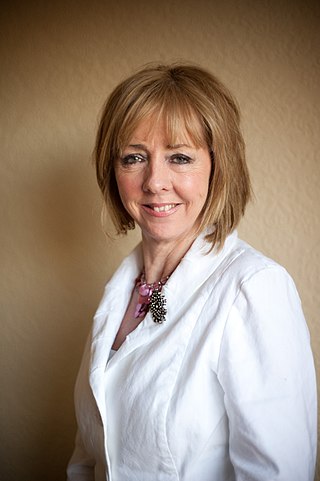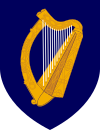Samaritans is a registered charity aimed at providing emotional support to anyone in emotional distress, struggling to cope or at risk of suicide throughout the United Kingdom and the Republic of Ireland, often through its telephone helpline. Its name derives from the biblical Parable of the Good Samaritan, although the organisation itself is not religious.

The National Society for the Prevention of Cruelty to Children (NSPCC) is a British child protection charity founded as the Liverpool Society for the Prevention of Cruelty to Children (LSPCC) by Thomas Agnew on 19 April 1883. The NSPCC lobbies the government on issues relating to child welfare, and creates child abuse public awareness campaigns. Since the 1980s, the charity has had statutory powers allowing it to apply for help on behalf of children at risk. In the 1990s, the charity's publication, Satanic Indicators, fueled panic in social workers who went and accused parents and removed children from homes when they should not have. It operates a help line. The Paddington Bear character has partnered with the charity to raise funds for the charity. NSPCC operates telephone helplines.

Childline is a British counselling service for children and young people aged up to 18 in the United Kingdom provided by the National Society for the Prevention of Cruelty to Children. They deal with any issues which cause distress or concern; some of the most common issues include child abuse, bullying, mental illness, parental separation and or divorce, teenage pregnancy, substance misuse, neglect, and psychological abuse.
A crisis hotline is a phone number people can call to get immediate emergency telephone counseling, usually by trained volunteers. The first such service was founded in England in 1951 and such hotlines have existed in most major cities of the English speaking world at least since the mid-1970s. Initially set up to help those contemplating suicide, many have expanded their mandate to deal more generally with emotional crises. Similar hotlines operate to help people in other circumstances, including rape, bullying, self-harm, runaway children, human trafficking, and people who identify as LGBT or intersex. Despite crisis hotlines being common, their effectiveness in reducing suicides is not clear.

Beyond Blue is an Australian mental health and wellbeing support organisation. They provide support programs to address issues related to depression, suicide, anxiety disorders and other related mental illnesses.
Victim Support is an independent charity in England and Wales that provides specialist practical and emotional support to victims and witnesses of crime.
ReachOut.com is an internet service for young Australians that provides information, support and resources about mental health issues and enable them to develop resilience, increase coping skills, and facilitate help-seeking behaviour. The site contains information about issues affecting young people in the form of fact sheets, stories, podcasts and online forums.
988 is a telephone number used in some North American (NANP) countries for a suicide prevention helpline. In the United States, it is known as the 988 Suicide & Crisis Lifeline. In Canada, it is known as the 9-8-8 Suicide Crisis Helpline.
Aware is a voluntary organisation based in Ireland which aims to assist people affected by depression, bipolar disorder and related mood conditions. Its CEO is Dominic Layden. It is registered as a charity with the Charities Regulator in the Republic of Ireland and the Charity Commission in Northern Ireland.
The Rehab Group is an international not-for-profit organisation providing health and social care, training and education, rehabilitation, employment and commercial services. Operating primarily in Ireland and the United Kingdom, it was originally established in 1949 as the Rehabilitation Institute, and provided training services to people with tuberculosis. In 2014 and 2015, a number of controversies involving the Rehab Group resulted in the resignation of the organisation's then CEO, a reduction in donations to several charities, and changes to the regulation of charities in Ireland.

Suicide is a significant national social issue in the United Kingdom. In 2022 there were 5,642 registered deaths by suicide in England and Wales, equating to an average of 15 suicides per day. 74.1% of suicides in England and Wales in 2022 were males. In Scotland there were 762 probable suicides in 2022, equating to an average of 2 suicides per day. In Northern Ireland there were 203 suicide deaths registered in 2022. Suicide is the biggest killer of men under the age of 50 in the UK.

Helen McEntee is an Irish Fine Gael politician. A Teachta Dála (TD) for the Meath East constituency since 2013, she has been Minister for Justice since June 2020, having previously served as a minister of state from 2016 to 2020. Her justice portfolio was temporarily reassigned during two six-month periods of maternity leave in 2021 and 2022–2023.
Breathing Space is a psychological counselling service in Scotland for people feeling depressed, or with other urgent psychological problems. It has a telephone helpline, a web interface, and a British Sign Language webcam interface, all staffed by trained advisers who offer guidance and referral. The service is funded by the Scottish Government Health Directorate and NHS 24, and is operationally managed by NHS 24.
Vandrevala Foundation is an NGO established by Cyrus Vandrevala and Priya Vandrevala in 2008. In 2009, the foundation launched the "Mental Health - India" initiative to raise awareness and provide services for emotionally distressed individuals.
In 2014, the WHO ranked Nepal as the 7th in the global suicide rate. The estimated annual suicides in Nepal are 6,840 or 24.9 suicides per 100,000 people. Data on suicide in Nepal are primarily based on police reports and therefore rely on mortality statistics. However, the burden of suicide in communities is likely to be higher, particularly among women, migrant workers, and populations affected by disasters.

Pat Buckley is an Irish Sinn Féin politician who has been a Teachta Dála (TD) for the Cork East constituency since the 2016 general election.

Joan Freeman is an Irish psychologist, mental health activist and an Independent politician who served as a Senator from 2016 to 2020, after being nominated by the then Taoiseach, Enda Kenny. She is the founder of Pieta House, a national mental health services charity. She resigned from Pieta House in 2014. She was an unsuccessful candidate in the 2018 presidential election.
Suicide in Ireland has the 17th highest rate in Europe and the 4th highest for the males aged 15–25 years old which was a main contributing factor to the improvement of suicides in Ireland.
Mental health in Australia has been through a significant shift in the last 50 years, with 20% of Australians experiencing one or more mental health episodes in their lifetimes. Australia runs on a mixed health care system, with both public and private health care. The public system includes a government run insurance scheme called Medicare, which aids mental health schemes. Each state within Australia has its own management plans for mental health treatment. However, the overarching system and spending remains the same.







